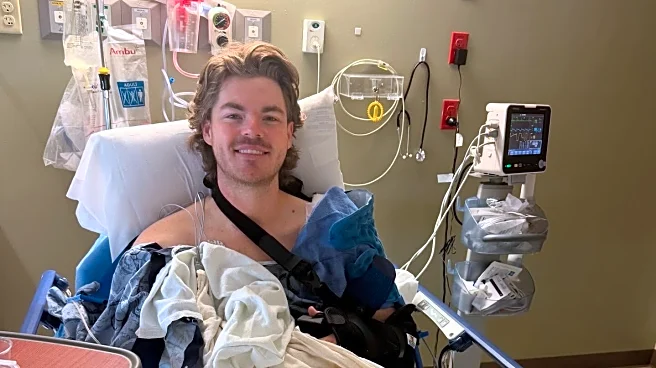What's Happening?
A systematic review and meta-analysis have been conducted to explore the relationship between hypertension and the recurrence of solid tumors in adult cancer survivors. The study analyzed data from 13
observational studies, encompassing 15 cohorts and 50,549 participants. The primary focus was to assess the recurrence risk in hypertensive versus normotensive individuals using hazard ratios pooled through a random-effects model. The findings indicated that hypertension was not significantly associated with an increased risk of solid tumor recurrence overall. However, subgroup analyses revealed a significant association in colorectal cancer, suggesting a potential link between hypertension and recurrence in specific cancer types.
Why It's Important?
The study's findings highlight the importance of managing hypertension in cancer survivors, particularly those with colorectal cancer. Hypertension is a common comorbidity among cancer survivors, and understanding its impact on cancer recurrence can inform treatment and management strategies. Effective blood pressure control may be crucial in reducing recurrence risks and improving long-term outcomes for cancer survivors. This research could influence healthcare policies and practices, emphasizing the need for comprehensive cardiovascular care in oncology settings.
What's Next?
Further research is needed to explore the mechanisms underlying the association between hypertension and cancer recurrence, particularly in colorectal cancer. Healthcare providers may consider integrating blood pressure management into cancer survivorship care plans. Additionally, policymakers could focus on developing guidelines that address the cardiovascular health of cancer survivors, potentially leading to improved patient outcomes and reduced healthcare costs.
Beyond the Headlines
The study raises ethical considerations regarding the prioritization of comorbidity management in cancer care. It also underscores the need for interdisciplinary collaboration between oncologists and cardiologists to optimize patient care. Long-term, this research could lead to shifts in how survivorship care is structured, with a greater emphasis on holistic health management.











